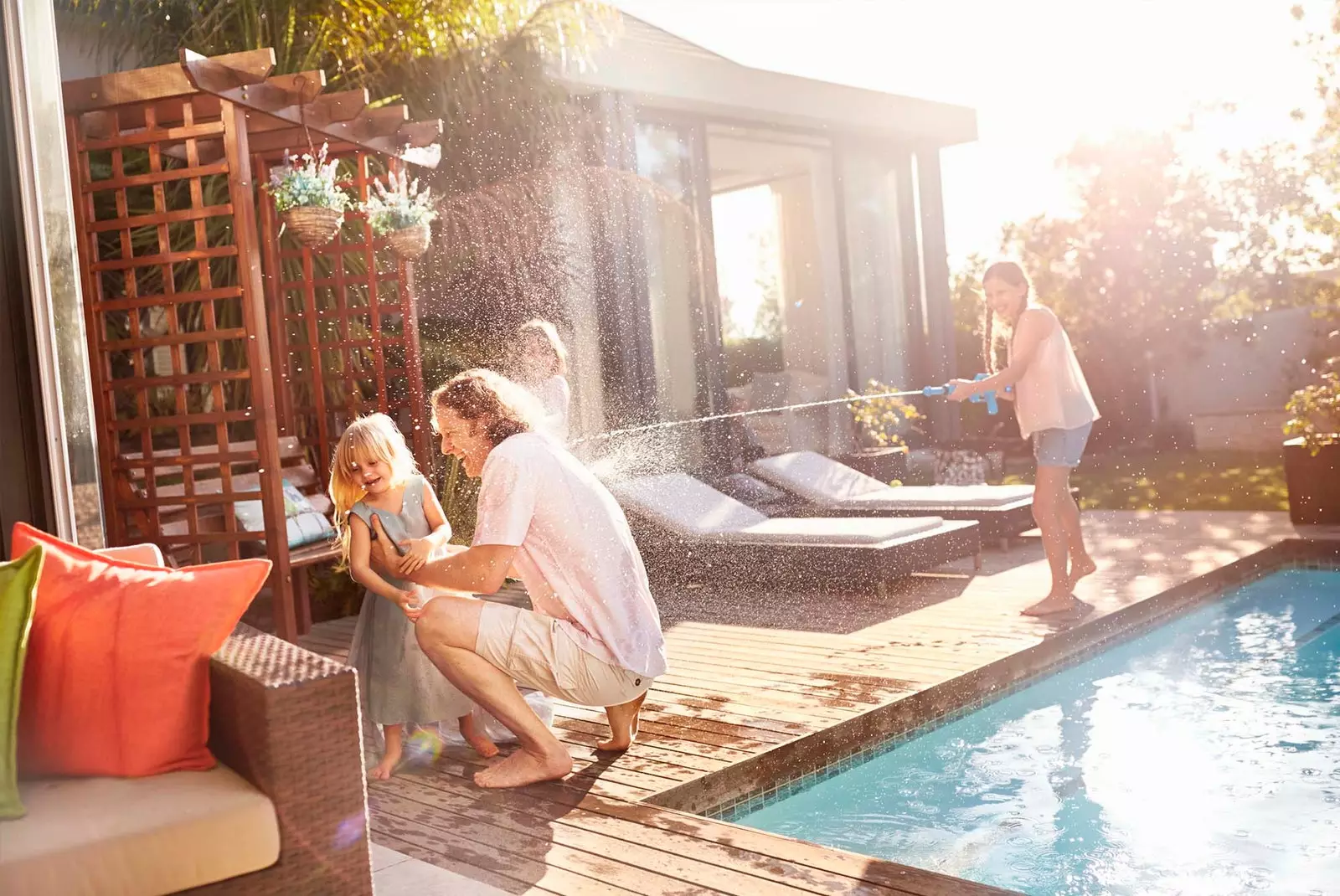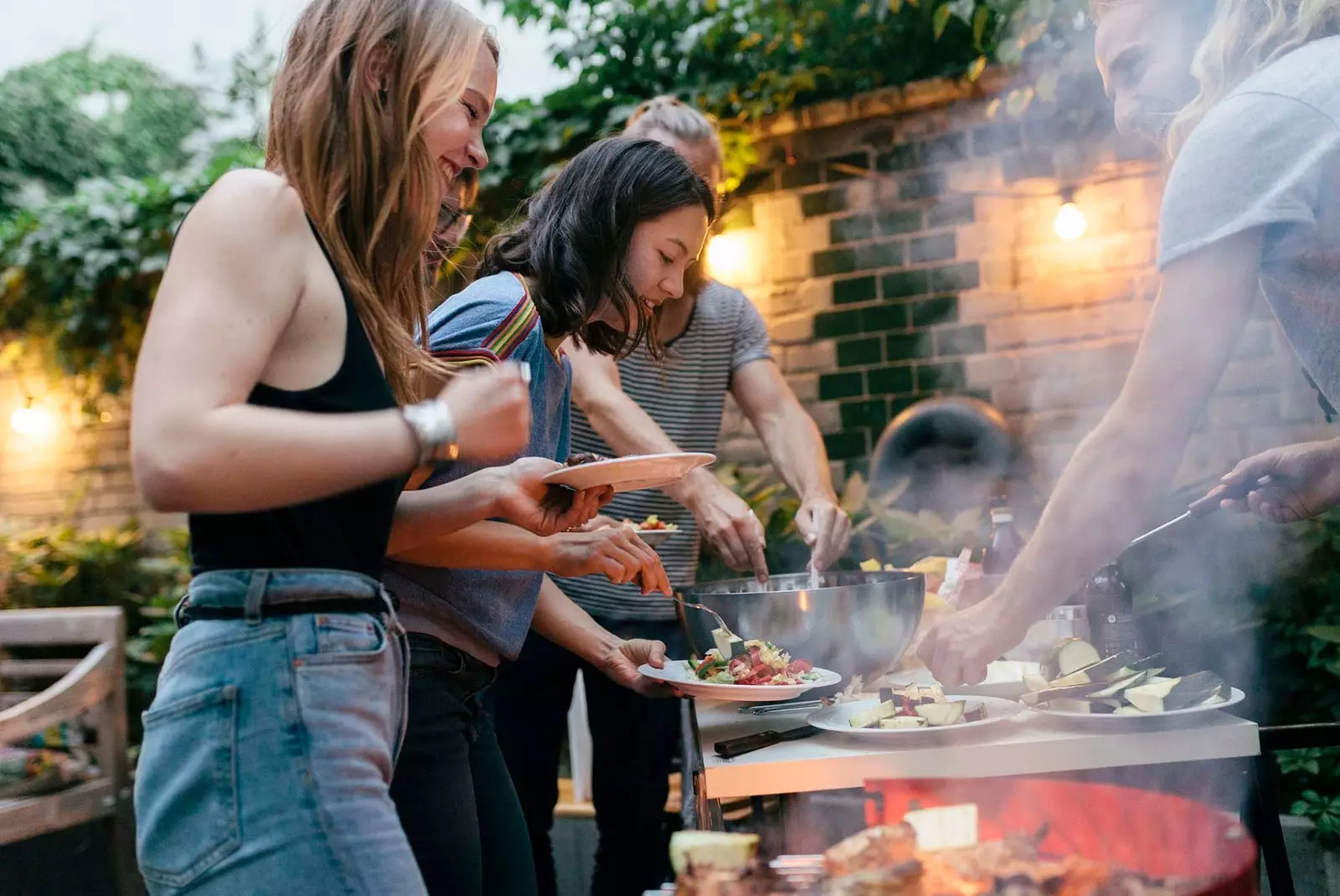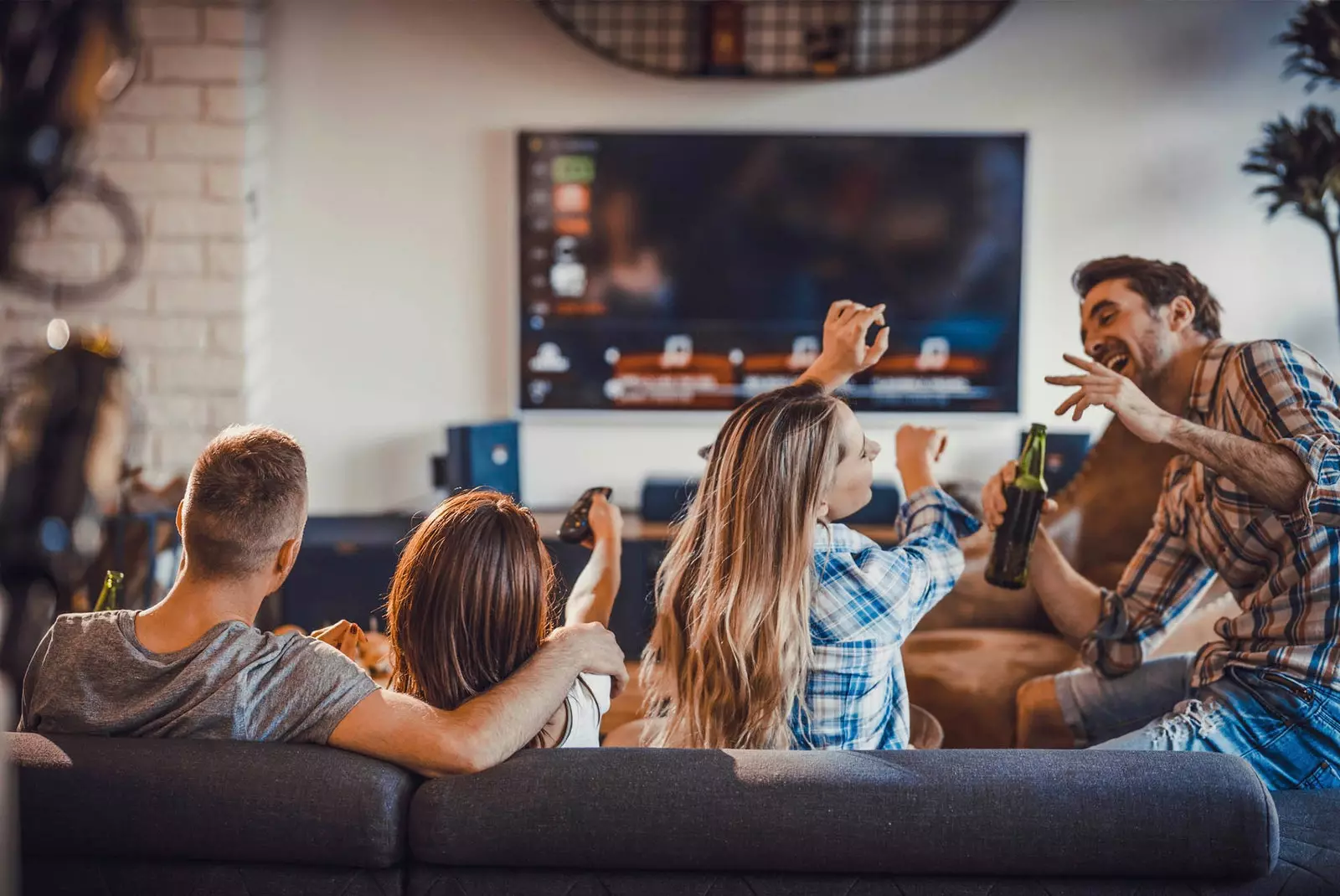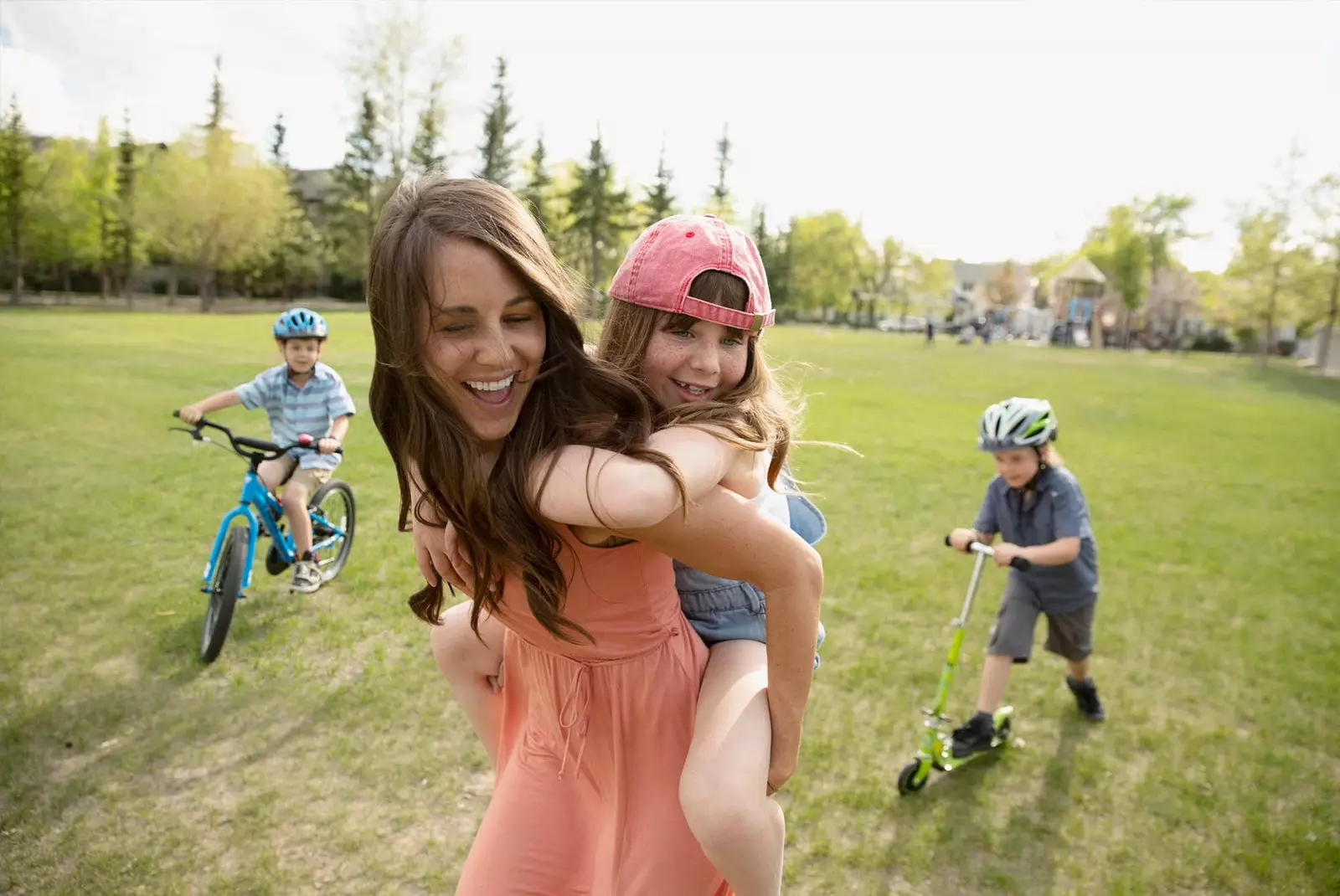
Would you spend your vacations at home?
Travelers spend the year looking forward to the holidays catch a plane and forget about the routine , with all that this implies: expenses, stress, excitement, new experiences. But, for some time now, there are those who choose to spend their days off without leaving home . And since in the 21st century there is no activity without its particular nickname, this action has also been given a name: staycation .
It was the economic crisis that exploded in 2008 that coined the term in the United States, in an attempt to please those who could not afford to leave home. Then, with the rise in the price of gasoline, the media and stores joined in their praise of the staycation, a practice with which one saved by not using the means of transport... but spent on everything that was needed for turn the home into a place worthy of a vacation.
Barbecues, lawn furniture, portable DVD players, and even mosquito repellant were for sale everywhere, often at discounted prices. The CNN In those days, it even showed the report of a father of a family who used the money that would have been spent on a vacation to get his house ready to enjoy it, adding a basketball and volleyball court, a swimming pool, a jacuzzi and an orchard, as collected by the study The Great American Staycation and the Risk of Stillness .

Barbecues are part of the 'staycation'
It was also that year when the foundations for the staycation were laid, a practice for which good morning america summarized four rules:
1.Program start and end dates of your staycation. Otherwise, you run the risk of feeling like in any other succession of nights in front of the television
2. Take photos or videos of the staycation, just like you would on a vacation away from home
3.Do not carry out housework : don't make the bed or vacuum, clean the closets or remove the weeds.
4. Fill your time with activities.
Other pages like Honeymoons , dedicated to selling vacation packages for couples, added others: put a mat of “ You're not welcome ” at the entrance of the house -in the form of the “please do not disturb” card of the hotels-, put on a maximum spending budget and not get over it, get hold of table games and use books, movies, and photographs with which transport the family to a different place.
During that summer, the surveys in the United States followed each other in which the tendency to staycation seemed to have taken hold. And let us remember that we are talking about a country with a long tradition of going on vacation, which was already fashionable when Henry Ford -the founder of the car company- put the tent in the car back in the 1900 , as recalled at work: Vacation or staycation?

Schedule start and end dates of your staycation
More than ten years have passed since that fateful crisis; So what remains of the staycation today? It seems that not a little: a mere search in Google News yields more than 1,550 results in Spanish from all kinds of media, most of them offering clues about how to prepare the best staycation . The same search in English returns almost 140,000, and both are closely related to a phenomenon that has also taken hold in recent years, nesting, the decision to stay home all weekend instead of going out, which, as stated The country in a headline from March 2017, “lowers anxiety and enlightens the mind.”
Days after the publication of that article, however, an article by Inma Saranova went viral on Public , titled 'Nesting', 'Job Sharing', 'Wardrobring'… This is how the media convinces you that being poor is cool. In it, the theory is defended that some media outlets "seem hell-bent on selling us the glamor Of Poverty, so that we believe that the situations of social and economic helplessness that a large part of the population faces are, in reality, super trendy”.
And she continues: “Imagine a dystopian world in which the majority of the population lived in a worse situation than the one lived up to that moment and that, in order to maintain social control, people had to meekly accept that can no longer aspire to what previous generations aspired to ”. The author affirms, however, that this universe is not as dystopian as it seems, that we are already immersed in it.
And it seems that reality proves him right. Already in 2009, Matt Wixon wrote in his book The great staycation **Americana: How to Plan a Fun Home Vacation for the Whole Family (and Your Wallet!) ** that staycations are “the kind of vacation you really nobody spoke until they became a staple product. He goes on to say that since he has three children, flying is exceptionally expensive, and that he also prefers to save for what may happen in the future.
The author writes: “A staycation is most successful when you have a positive attitude towards her and willingness to re-adjust the traditional notion of what a vacation is”. And he continues: “And do not be ashamed take a few staycations. Virtually everyone in the country is experiencing financial hardship, and staycations are a way for individuals, couples and families to get out of it without spending too much.”

It is important to have a positive attitude towards the 'staycation' so that they work
Much later, earlier this year, lonely planet headlined “Why UK travelers will opt for a staycation in 2019”, while the subtitle stated: “Despite wanting to travel more in 2019, around a third of UK travelers will opt for a staycation as it is expected that raise prices of international travel”.
In this particular case, he points to the Brexit as guilty of the increase in prices, and it is explained that, despite the fact that 56% will not leave the island, many do plan to make trips within it. In Spain, Europe Press titled in June of last year: The 'Staycation' proliferates, enjoy free time at home and put aside traveling , based on a survey of air conditioning brand Daikin.
ARE THE STAYCATION BETTER FOR YOUR EMOTIONAL HEALTH?
Leaving aside the economic aspect of staycations, are they really as good for our emotional health as is often claimed? The author of the popular maternity blog Scary Mommy she posted just a few days ago in the article Why I always prefer a staycation: "We like to think of our staycations as a time to finally enjoy all the little things that we never get a chance to really enjoy on a day-to-day basis . If you think about it, even though we might be together and have fun during the work week or the school year, there really are really a lot of limits, and a lot of us just don't have the head space or energy to spend quality time together." .
Thus, the defenders of this experience argue that they generate less stress than a typical vacation and that they allow us to really relax. for the psychologist jara perez , however, their psychological benefits are variable: “I think it depends a lot on the needs that you capsize on your vacation”, she explains to us. “It is not the same to take vacations because you need changes, intensity and strong emotions than taking vacations because you want to rest and stop for a while”.
In her opinion, opting for a staycation is a suitable option "perhaps, if you want be calm , rest, have time for yourself and the changes of scenery really don't matter to you”. However, for these days off to leave us with a good emotional aftertaste, for her it is essential change the routine : "Despite being at home, it would be important for us to be able to do things -or not do them- that would help us clearly differentiate when we are at home on vacation and when we are not."

Maybe the 'staycation' will help you rest
For its part, Thomas Gilovich, psychologist and researcher Cornwell University (New York), as well as the author of several works related to happiness, is clear: the best thing we can do with our money is invest it in experiences and not in things -things, for example, like a new barbecue to enjoy our staycation-. That because? To begin with, he and his team discovered that the mere fact of to think in paying for experiences (whether tickets to a concert or passes to a ski resort, for example) already offered the consumer higher levels of enjoyment to do it in acquiring things.
And not only that: it turns out that comment what we have done also brings us much greater well-being than talking about material goods, and that is why our conversations usually revolve around the first point. " Remembering an experience facilitates its relief , encourages beautification (the more we talk about that time we climbed Mount Rainier, the more we become a 'climber') and fosters social connection, all of which increase the enjoyment of the original event," says Amit Kumar. , Gilovich's research assistant."That doesn't happen with the material," he concludes.
On the other hand, according to Project: Time Off, a study of the US Travel Association , "Americans who take all or most of their vacation days to travel - the mega-travelers - report clearly higher rates of happiness than those who use little or none of their time to travel". But not only that: contrary to what it might seem, they also obtain greater advantages at work. Thus, more than half of these mega-travelers said they had received a recent promotion, in specifically, 12% more than those who use their vacations little or not at all.They also received bonuses or raises of 6% more than the latter.
Finally, according to the study ** Holiday travel, staycations, and subjective well-being **, from the University of Tampere (Finland), "scientific evidence shows us that traveling has advantages over staying at home during our time free does not have". "During the trip, the subjects slept more, engaged in more physical and social activities and less in compulsory activities", reads the research. In addition, "well-being of the hedonistic type scored higher, and ruminative thinking was lower"
Physical distance from both home and work was associated with participation in activities that provide resources rather than consume them , and seems to result in a mental distance from everyday concerns", something that is very much in tune with the opinion of James Burque , the expert who has already recounted for Traveler the many psychological benefits that come from traveling.
